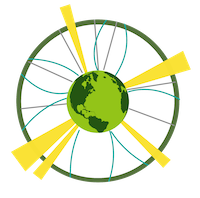Speaker
Description
In the field of natural science, there is a customary reluctance to engage in deliberations on economic systems, particularly with regard to the historical debate on capitalism versus communism. Nevertheless, the paper posits that the scientific community can exert influence on the political system by emulating their own organisational and action models within the economic system.
Typically, the development and production of industrial goods and international services such as mobile phones, cars, AI services and social media platforms is carried out by competing, profit-oriented international groups. The success of these endeavours frequently results in the accumulation of significant financial and political influence within our societies. However, from an ecological sustainability perspective, not all products that are produced for profit are desired by society, and not all urgently needed products that would enhance sustainability are available as consumer goods due to a lack of profitability in comparison to competing products. The pressing need for rapid transformation within global industries is underscored by the imminent risks posed by climate change. Nevertheless, the free global market exhibits significant inertia on a global scale, constraining the potential for political initiatives to affect a transition in the short term.
International centres of fundamental research, such as CERN, typically function as non-profit entities funded by member states and disseminate their scientific findings to the global community. These institutions are structured to adhere to democratic principles in their management. Research aims are subject to periodic re-evaluation, with decisions distributed across various levels of expert boards that span the scientific, economic, technical and political requirements and boundary conditions. To avoid unnecessary repetitions and to enable the combination and complementation of efforts by different centres, scientists from competing organisations are included in the evaluation boards.
The concept of democratic capitalism is predicated on the notion of transferring the scientific method to the economic realm. It encompasses international non-profit organisations that specialise in the production of sustainable products or services utilising cutting-edge technology. These organisations are linked to member states in a manner analogous to that of CERN, and sell their products on the global market to consumers or governments. The revenues obtained are utilised for the purpose of remunerating employees and management fairly, and for the distribution of profits to member states in accordance with clearly defined rules. Capital is provided by member states (e.g. using government bonds), and the decisions regarding production, including what is produced, how it is produced, and what the salaries and production sites are, are negotiated in different levels of elected committees. These committees are constituted by the amalgamation of the experiential knowledge of businessmen, political stakeholders, and scientific experts. It is anticipated that this democratic capitalism, founded upon the established constitutions of non-profit organisations, will possess the capacity to respond expeditiously to the demands posed by climate change, thereby diminishing the exploitation and corruption that is pervasive within the economic-political complex.

